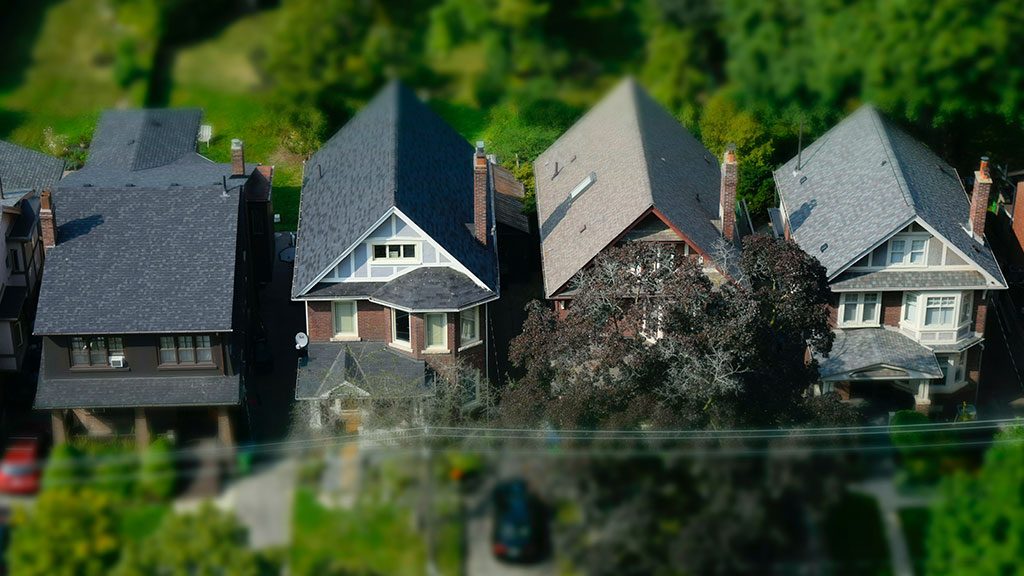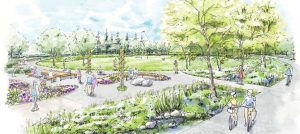The City of Kelowna has taken the first step towards making new homes net-zero energy ready by 2032.
Municipal council recently passed a resolution endorsing an energy code implementation strategy for all new Part 9 buildings, residential buildings three storeys and less and under 600-square-metres. As of June 1, 2021, new homes will have to be 20 per cent more energy efficient than the current base.
The decision was made to comply with the CleanBC Plan, which lays out a timeline for regions across the province to implement the British Columbia Energy Step Code, a provincial standard that is designed to ensure that municipalities and industry move toward a net-zero energy strategy.
Future iterations of the B.C. Building Code will require that new homes be 20 per cent more energy efficient by 2022, 40 per cent by 2027 and 80 per cent by 2032, compared to the current base.
The move is expected to add to the pricetag of building a new home, as incremental costs would need to be added to building designs in order to meet various goals for a small, medium and duplex home. Estimates vary depending on the source of the information, ranging from 0.3 to 6.4 per cent.
Council has been considering the issue since fall 2017, but after seeing reports which indicate that Canada is warming at twice the rate of the rest of the world, decided immediate action was needed.
Although more expensive for builders, Kelowna Mayor Colin Basran said council is headed in the right direction.
“Council feels this is absolutely the right thing to do,” he said. “The increased costs are minimal when compared to the multi-millions of dollars we will need to spend responding to and recovering from climate changes events like flooding and fires. We need to cut back on greenhouse gas emissions in our community to help play our part, and this is one of the ways to do so.”
According to the provincial plan, all new buildings have to be net-zero energy ready by 2032. A net-zero energy ready building is designed and built with the inclusion of on-site renewable energy systems so that the building can produce as much energy as it consumes on an annual basis.
The B.C. Energy Step Code was adopted by the province in April 2017. The code creates a standard set of performance requirements for building envelopes, equipment and systems and air-tightness.
The code marks an end to the prescriptive approach. Instead, a building’s performance must be proven, demonstrated through whole-building energy modelling and on-site testing to validate how the design, and the constructed building, meet the performance targets associated with each step.
The code forms a framework by which the construction industry can, over time, step up the performance of their buildings to the net-zero energy ready level that must be achieved by 2032.
Many communities across the province are already adopting or are in the process of adopting changes. They include Penticton, Vernon, and districts of Summerland, Peachland and Lake Country.
Kelowna is seeking to strike a balance between the need for more buildings and the goal of reducing greenhouse gas emissions.
Based on the trends of previous years, it is anticipated that the new requirements for Part 9 buildings will affect 700 to 800 building permits issued annually for single-family dwellings, duplexes, triplexes, quadplexes, townhouses, some smaller apartment buildings and carriage houses.
While there will be an impact on the building industry, Basran said the move was necessary as the two leading contributors to greenhouse gas emissions in the City of Kelowna are vehicles and buildings.
A report by B.C. Housing released last fall that modeled thousands of energy conservation combinations, showed the changes will result in cost hikes of between 0.4 and 1.2 per cent for new residential builds.
By comparison, a report by the Canadian Home Builders’ Association showed that it could cost between 2.5 and 6.4 per cent more for new residential builds, depending on the type of size of the building.
Case studies by B.C. Hydro of five recently constructed single-family homes in various B.C. communities, meanwhile showed cost increases varied from zero to four per cent.
The end result of the changes, said Basran, will be that builders will erect more energy-efficient homes which will lower greenhouse gas emissions and energy use and residents will see lower operating costs.
“We believe our industry, community and the planet will be better served by implementing the steps sooner in order to be best prepared for the future.”
To help ease the pain for builders, Kelowna is offering a $500 building permit fee rebate from now until Nov. 30 for contractors that engage an energy advisor for modeling and complete a final blower door test.
Basran said that later this year Kelowna city council will also be looking at a strategy that will examine options and incentives to encourage energy retrofits of existing buildings, as the province has indicated it will be putting regulations in place to govern those as well by 2024.
Basran said he is pleased that the city is moving forward and his only regret is that council didn’t take action much sooner, as reputable studies done and released by the Intergovernmental Panel on Climate Change and Environment as well as Climate Change Canada have made it crystal clear that the globe is warming and it will have significant impact on the planet.
“The time to act is now if we are going to make meaningful change so as to not destroy this incredible place we call home,” he said.











Recent Comments
comments for this post are closed